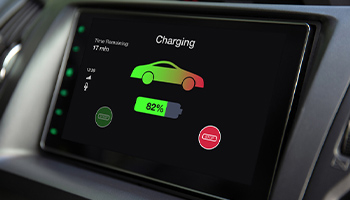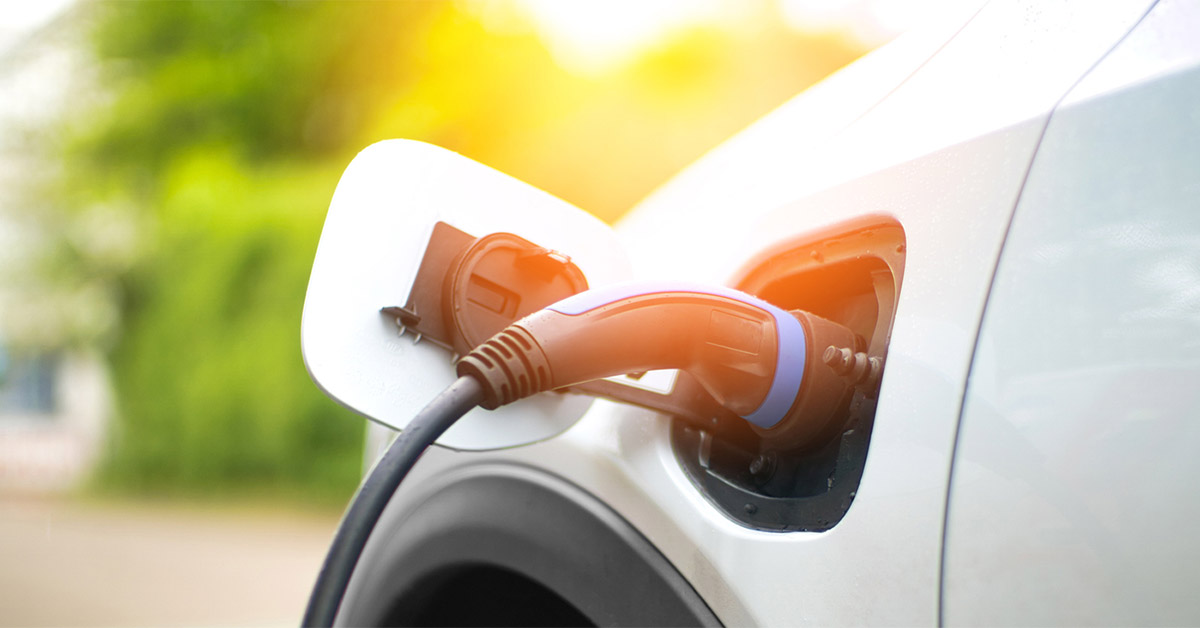Over the past year, electric vehicle sales have surged as drivers seek to combat rising fuel costs and be more environmentally friendly. With numerous advantages over their gas counterparts, such as “refueling” at home, it’s easy to see why consumers are making the switch.
If you’ve been thinking about purchasing an EV, there are some additional factors you may want to consider, like the cost difference to insure an electric vehicle vs. a regular gas-powered one. To help avoid any surprises, let’s take a look at what to expect when insuring an electric vehicle.
Electric Vehicle Insurance vs. Conventional Auto Insurance

Generally, purchasing insurance for an electric vehicle works the same as buying insurance for a gas or diesel vehicle. The main difference, however, usually comes down to the cost. Because electric vehicles tend to be more expensive than their gas counterparts, they also tend to be more costly to insure. Additionally, due to their hardware and batteries, electric vehicles generally cost more to repair after an accident, further increasing the likelihood of higher rates.
Although your auto insurance policy may increase after switching to an EV, it’s important to remember that typical insurance incentives should still apply. Examples include discounts for being a good driver, bundling policies, being claim-free, and more. Some insurance companies even offer discounts specifically on EVs, so be sure to ask!
What Are the Cheapest EVs to Insure?
As mentioned, the higher repair costs associated with electric vehicles tend to result in slightly higher insurance rates. The cost to insure your EV will ultimately depend on its value and your personal driving history. According to Mercury Insurance, some of the most affordable to insure 2021 model year cars are:
- Hyundai Santa Fe
- Kia Soul EV
- Nissan Leaf
- Hyundai Ioniq
- BMW i3
- VW ID4
- Chevrolet Bolt EV
Electric Vehicle Charging Options
When it comes to charging your EV, there are a few options that you have: Level 1 charging, Level 2 charging, and DC fast charging.
1. Level 1 Charging
When you purchase your EV, it will most likely come with a Level 1 charging station, which you can plug directly into a standard household 120-volt outlet. With this option, there is no added installations or rewiring required in your home (assuming there is already an outlet near your garage or driveway). However, this is the slowest charging option, delivering about 5 miles per hour of charge. Therefore, this option works best for hybrid owners or if you have a short commute with workplace charging.

2. Level 2 Charging
The next step would be a Level 2 charging station if you’d like more charging power. However, this type of charging requires a professionally installed 240-volt outlet on a dedicated circuit. Your home’s electric dryers and ovens use these outlets.
Level 2 chargers provide around 25 miles per hour of charge. These charging stations are the better choice for owners of fully electric vehicles, as those vehicles have larger batteries with longer charging times. On average, the cost of a Level 2 station ranges from $500-$700, not including any electrical costs associated with professionally installing a 240-volt outlet.
DC Fast Charging
The fastest charging option for EVs is DC fast charging, which can provide up to 250 miles of range per charging hour. But, due to their high costs, you’ll typically only find these chargers in public spaces such as rest stops, parking lots, and office buildings.
Will My Electric Vehicle’s Charger Affect My Homeowner’s Insurance?
Generally speaking, your electric vehicle’s charging station will not affect your homeowner’s insurance.

According to Mercury Insurance, hard-wired charging stations are usually considered part of your dwelling, and thus, the station will likely be covered depending on the type and cause of a loss.
What is most important is that all charging equipment be professionally installed while complying with all local and state regulations. In addition, some insurance companies may ask to see proof that your charger has been installed professionally.
Speak With an Insurance Specialist
Are you thinking about purchasing an electric vehicle? If so, it’s best to speak to your insurance agent before making the switch to see how your rate may change. A qualified insurance specialist will know the right questions to ask that will help you find the best rate and coverage. So, if you’re ready to review your options, give the AIS insurance specialists a call at (855) 919-4247.
The information in this article is obtained from various sources and offered for educational purposes only. Furthermore, it should not replace the advice of a qualified professional. The definitions, terms, and coverage in a given policy may be different than those suggested here. No warranty or appropriateness for a specific purpose is expressed or implied.


